Greta Oto
The glass butterfly whose scientific name is Greta oto, is one of the most peculiar butterflies of the Nymphalidae family, because the tissue between the veins of its wings appears to be glass. The transparency of its wings is due to the lack of color in part of the scales that cover the wing surface. Besides being one of the few species that exhibits this characteristic in its chromatic pattern, it also makes long migrations, which makes its study more attractive
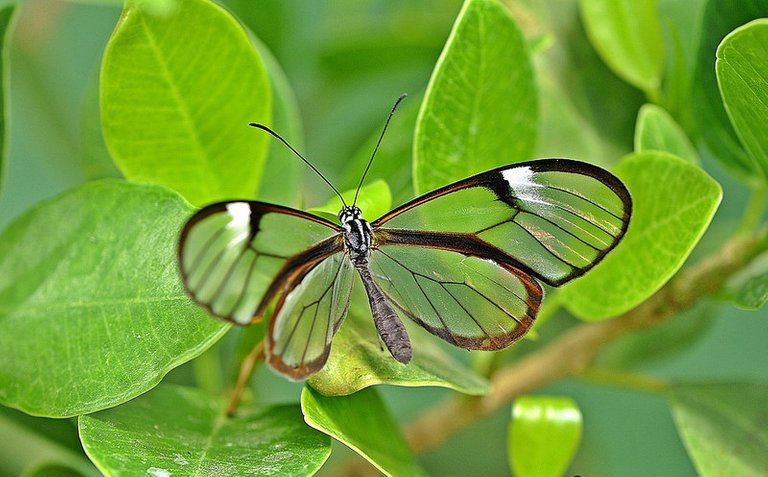
Characteristics
It is a beautiful lepidoptera of the family of the nymphalids, its wingspan is between 5.5 and 6 cm; They can travel up to twelve kilometers in a day as a migratory habit.
They are also known by the name of mirror because their wings are transparent or glass crossed by veins of a beautiful brown color, which is also present in the entire wing and even in this area you can see other colors such as: red or Orange, your body is dark in color. When the light passes through its beautiful wings it is easy to appreciate beautiful flashes of color, red, green, orange or turquoise
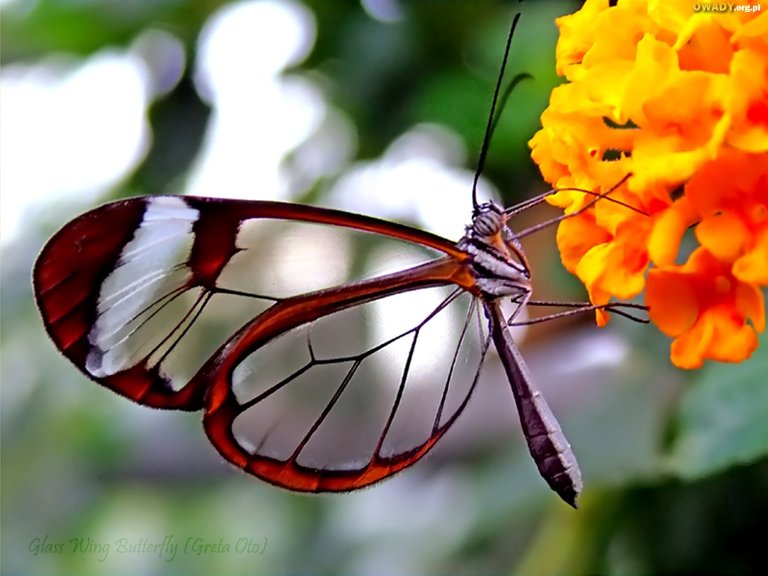
The body of the glass butterflies is of a dark color and its wings are not completely transparent, only the tissue that is between its veins lacks color. The edges of the front and back wings are dark brown, sometimes with reddish or orange spots.
The transparency of the wings is due to the fact that the fabric is not capable of absorbing light, nor of dispersing it, and it is even possible to see through them. This feature serves as camouflage among the vegetation, so they manage to go unnoticed by predators a large number of times.
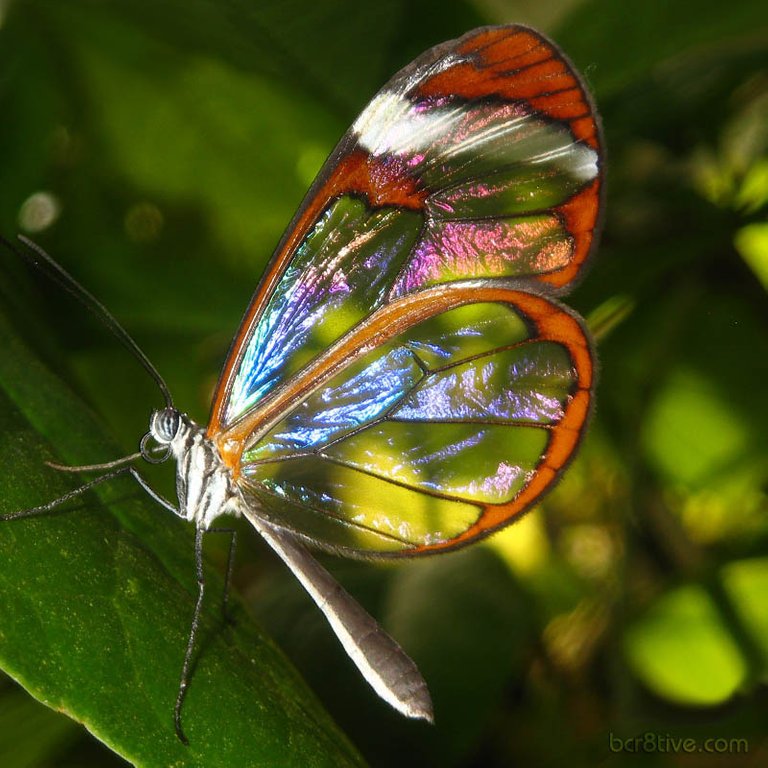
Although their wings seem extreme fragility they are not as delicate as they seem, they are strong and resistant, as well as those of other species of butterflies.
Most butterflies have colorful wings with designs much admired by humans. The designs have two main functions: On the one hand, it distracts predators and seduces potential partners. The transparent wings also allow the butterflies to camouflage themselves among the leaves and thus avoid being detected by those species that have a sharp view for the colors.
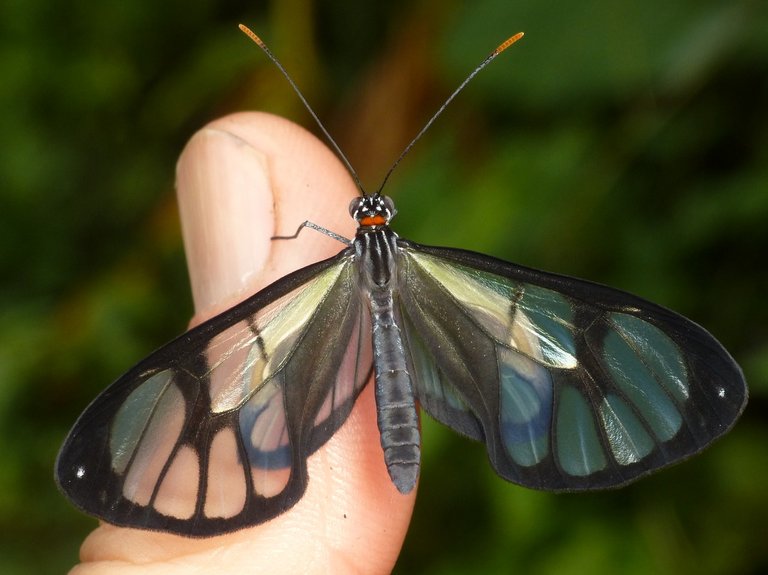
Habitad
They are endemic insects from Central America and mainly inhabit humid areas; It is said that when they become adults they migrate to the south, from Mexico to Panama and there is even data of their presence in Colombia and Venezuela. According to ecologists, the presence of this butterfly "mirror" is a sign of high quality habitat and on the contrary its disappearance is the warning of ecological and environmental changes.
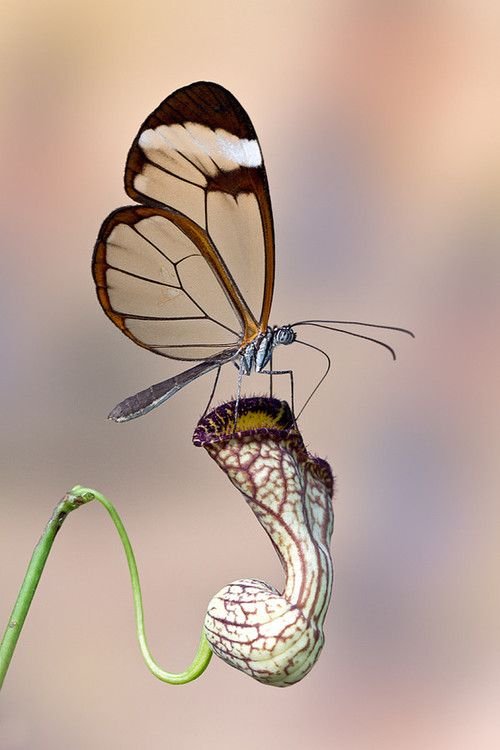
Feeding
They feed on the nectar of a variety of common tropical flowers such as "lantana" but prefer to lay their eggs in the solanaceous plants of the tropical genus Cestrum, these are toxic that help to scare off predators and not be eaten, otherwise unfortunately they will die learning that was a bad choice "Animal that eats them, animal that does not count it anymore", this method is known as "trial and error" or "trial and error"
It does not hurt the eggs; Once the caterpillar leaves this plant serves as food and toxins will accumulate in your body to become a butterfly without affecting them.

Greta oto (Espejitos, glass butterfly)
Contradictingly, the adult obtains the nutrients of two substances as apparently incompatible as the feces of birds and the nectar of the flowers of plants of the families Asteraceae and Boraginaceae. From this nectar they extract toxic alkaloids that fulfill a double function: to dissuade their potential predators and transform them into pheromones with which to attract females.

Reproduction Lek
The males exhibit a very complex and fascinating form of sexual behavior called Lek or lekking which is nothing more than a cooperative procession. The Lek mating is an extreme form of polygamy: Lekking males are grouped in places where they can be exhibited for the females and in the end they end up mating with several of them; while the females of the lekking species "compare" freely among the lek males to select a mate and after mating they will raise their descendants without any help from the males.

Scientific classification
Animalia Kingdom
Phylum: Arthropoda
Class: Insecta
Order: Lepidoptera
Suborder: Glossata
Infraorder: Heteroneura
Division: Ditrysia
Section: Rhopalocera
Superfamily: Papilionoidea
Family: Nymphalidae
Tribe: Ithomiini
Genre: Greta
Species: G. oto
Binomial name
Greta oto
Hewitson, 1854
Related link
http://www.arkinspace.com/2011/07/incredible-glasswing-butterfly.html https://blogs.lt.vt.edu/caitlincook/ http://www.arkinspace.com/2011/07/incredible-glasswing-butterfly.html https://en.wikipedia.org/wiki/Greta_oto
Being A SteemStem Member